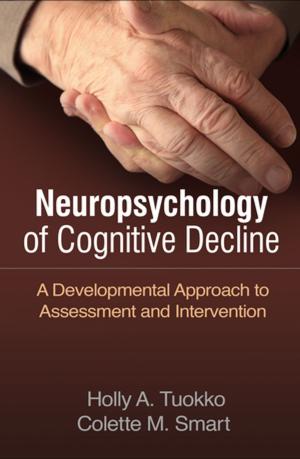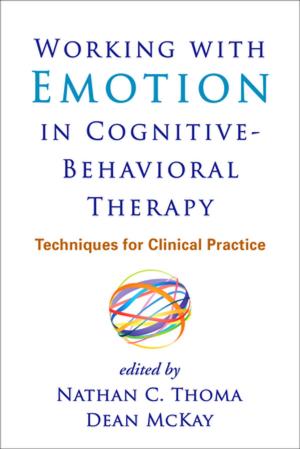Promoting Emotional Resilience
Cognitive-Affective Stress Management Training
Nonfiction, Social & Cultural Studies, Social Science, Social Work, Health & Well Being, Medical, Specialties, Psychiatry, Psychology, Cognitive Psychology| Author: | Ronald E. Smith, PhD, James C. Ascough, PhD | ISBN: | 9781462526338 |
| Publisher: | Guilford Publications | Publication: | May 31, 2016 |
| Imprint: | The Guilford Press | Language: | English |
| Author: | Ronald E. Smith, PhD, James C. Ascough, PhD |
| ISBN: | 9781462526338 |
| Publisher: | Guilford Publications |
| Publication: | May 31, 2016 |
| Imprint: | The Guilford Press |
| Language: | English |
Grounded in extensive research, this book presents a brief emotion-focused coping skills program that helps clients regulate their affective responses in stressful situations. Cognitive–affective stress management training (CASMT) promotes resilience by integrating cognitive-behavioral strategies with relaxation training, mindfulness, and other techniques. Systematic guidelines are provided for implementing CASMT with individuals or groups. The book includes detailed instructions for using induced affect, a procedure that elicits arousal in session and enables clients to practice new emotion regulation skills. Purchasers get access to a companion website where they can download and print the volume's 16 reproducible handouts and forms in a convenient 8 1/2" x 11" size, and can also download a muscle relaxation training audio track.
Grounded in extensive research, this book presents a brief emotion-focused coping skills program that helps clients regulate their affective responses in stressful situations. Cognitive–affective stress management training (CASMT) promotes resilience by integrating cognitive-behavioral strategies with relaxation training, mindfulness, and other techniques. Systematic guidelines are provided for implementing CASMT with individuals or groups. The book includes detailed instructions for using induced affect, a procedure that elicits arousal in session and enables clients to practice new emotion regulation skills. Purchasers get access to a companion website where they can download and print the volume's 16 reproducible handouts and forms in a convenient 8 1/2" x 11" size, and can also download a muscle relaxation training audio track.















